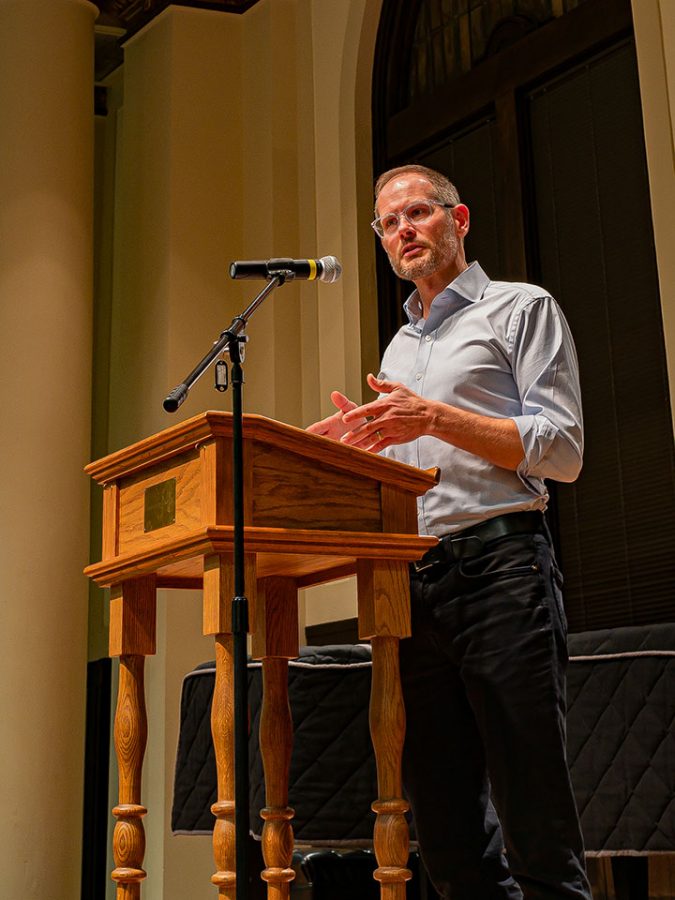Dr. Aaron Bobrow-Strain, a professor of politics at Whitman College recently wrote a book about U.S./Mexican border reform and the life story of an immigrant named Aida Hernandez. On Feb. 20, Bobrow-Strain visited Augustana to give a lecture on these themes.
Bobrow-Strain opened the lecture with recent headlines about immigration and the border.
He then proceeded to talk about his book titled, “The Death and Life of Aida Hernandez: a Border Story.” He also talked about the process of collecting data, the narrative of history and the intention behind the creation of the book.
“I hope that the talk gave people a better understanding of how the border is today,” Bobrow-Strain said. “I hope Aida’s story of courage and survival will encourage people to take action.”
First-year Aaron Hanania said he appreciated Bobrow-Strain’s initiative to figure out why immigrants are entering the country unlawfully.
“He went down there, he sat with those individuals,” Hanania said. “We don’t hear from this perspective.”
Hanania believes in protecting individuals trying to escape violence at the border.
The issue is important to him because diversity is everywhere and he believes that it is immigration that teaches people to accept different cultures.
“The author had an interesting journey during the process of his book,” first-year James Adamczyk said. “As a reader of the book, I would’ve never thought the process took 2.5 years.”
Adamczyk appreciated the seriousness with which Bobrow-Strain approached his research and the telling of Aida’s story, saying that there should be some kind of reform at the border and encouraging his peers to advocate and donate if they can.
“I had no idea how much trauma America was causing,” junior Jordan Cray said.
She went on to say that it wasn’t until her January term when she studied abroad in Guatemala and was exposed to the perspective of the citizens of Guatemala that she made this discovery.
According to Cray, the United States is causing a lot of harm in Guatemala. This forces people to migrate to the United States, where those same migrants are promptly thrown in jail when they try to cross over without proper documents.
She said that this issue doesn’t affect her directly but indirectly via the friendships she has developed.
“The United States has an infamous track record when it comes to exploiting certain communities for gain,” Cray said.
She recommends that her peers learn more about these issues outside the media, because the media has a narrative that isn’t going to tell you everything.
“I think it’s completely unfair how America is treating immigrants,” junior Nadia Castillo, a first-generation Chicana, said.
She thought professor Bobrow-Strain did an amazing job highlighting the unheard voices at the border and found his push for self-education encouraging.
Many Augustana students at the event agreed that there is racial discrimination at the border. Some also attributed this racial discrimination to why politicians are only attacking the Mexican border rather than both the Canadian and Mexican border equally.
“I would never wish the violence, emotional, psychological and physical pain that Central and Latin American immigrants currently face on anyone else,” Castillo said.










































































































